Bonjour, c’est Véro
I was born in Toulouse, France and was a young girl still when my father’s job took our family north to Lille. Over the following two decades there would be more transitions from Montpellier to Lyon and finally Paris.
New homes. New friends. New schools. New lives every four or five years.
These days my brother and I travel a lot around France for work. He’d agree visits to Toulouse, our hometown, are special.
Pourquoi ? After all I lived longer in Seattle or Paris than I ever did anywhere else. Still when I introduce myself I start with “Je suis toulousaine d’origine… (“I was originally born in Toulouse…”)
Regional roots do matter.
They matter even more when your grandparents and a sizable number of your relatives once lived in that same area. Your hometown, your native region is where you build childhood memories even if only in the summer or during the Holidays.
There’s an old Michel Sardou song I love. The chorus: “Je viens du Sud et par tous les chemins, j’y reviens” (I come from the South and all roads lead me back to it.)
And just like that, I am back in southwestern France!
As I make my way through Toulouse I realize my senses are on high alert (in a good way) as I observe locals.
Sounds.
The Toulouse accent (regularly voted one of the sexiest in France) is described as “chantant” for its musicality and its rhythm. Locals have a tendency to stress vowels at the end of words when the rest of France may not. “Elle arrive” (she’s coming) turns into “Elle arriv-euh.”
Then there’s the invisible but unmissable “g” at the end of words. Tu vien-gs? (Are you coming?) Et le pain-g? (What about bread?)
Many local expressions come from the old Occitan language - la Langue d’Oc - once spoken in a large part of southern France. For at least two decades most signs in Toulouse have featured street or metro station names in French and in Occitan.
We are not in the Loire Valley (or in Paris) anymore!
Here dans le sud-ouest complaining is not referred to as “râler” but as “rouméguer” as in “Arrête de rouméguer !” (Quit complaining!)
Kids are “les pitchou(n)s.” The little ones.
At the supermarket the sales person offers “une poche” (instead of “un sac”) to pack my groceries.
A young guy looking down at his phone trips on the sidewalk and exclaims “Boudu con!” as he recovers. Almost anywhere else in France “Putain!” would be de rigueur.
Let’s not forget the essential cultural debate that has been tearing my homeland apart for years: In Toulouse do not even think about ordering “un pain au chocolat” at the local boulangerie. Here they only sell “chocolatines.”
Don’t be too smart now! Calling it “un pain-g au chocolat” won’t help.
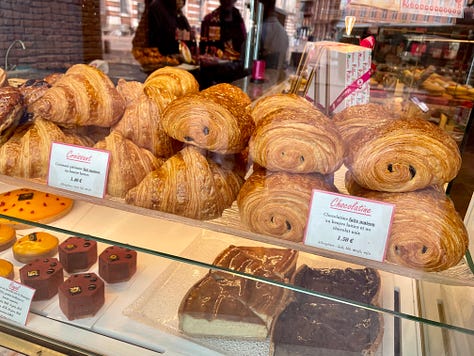
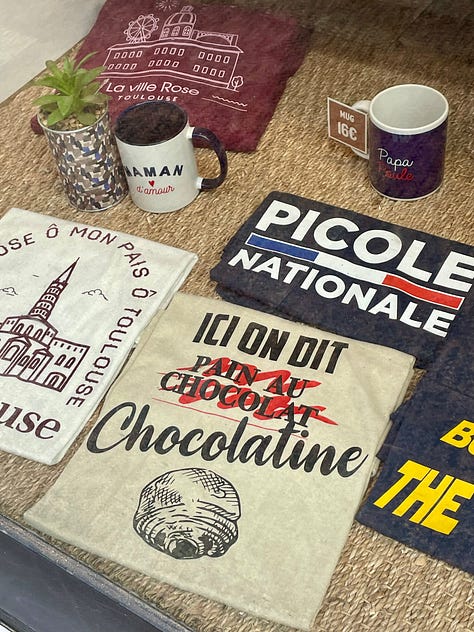
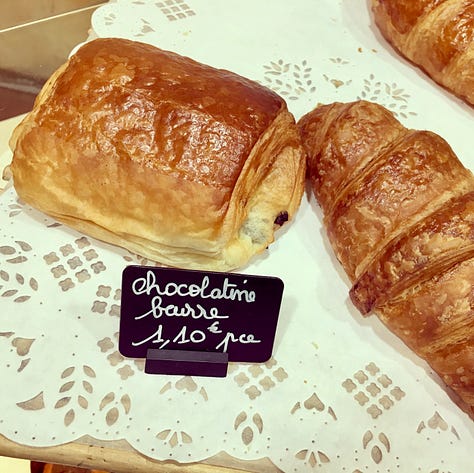
Sights
Toulouse, capital of the Occitanie region is referred to as “la Ville Rose” (the Pink City.)
Note: If you want to sound like a local pronounce the “o” sound in “rose” as in “pause.”
Toulouse, la Ville ROse.
In the Loire Valley where I have lived for a few years I am used to elegant white or cream-colored façades made with the locally-quarried tuffeau (tufa) stone. They stand out spectacularly against the grey slate rooftops from nearby Anjou.
Bienvenue à Toulouse ! Here, red tiles and red bricks rule.
C’est le sud. In the south life (like the skies) seems more colorful, more vibrant. Look at the Toulouse skyline from a vantage point at sunset, and you will understand.
To me, this Southern Belle comes more in shades of orange (my favorite color) than pink. Meet Toulouse, the happy city.
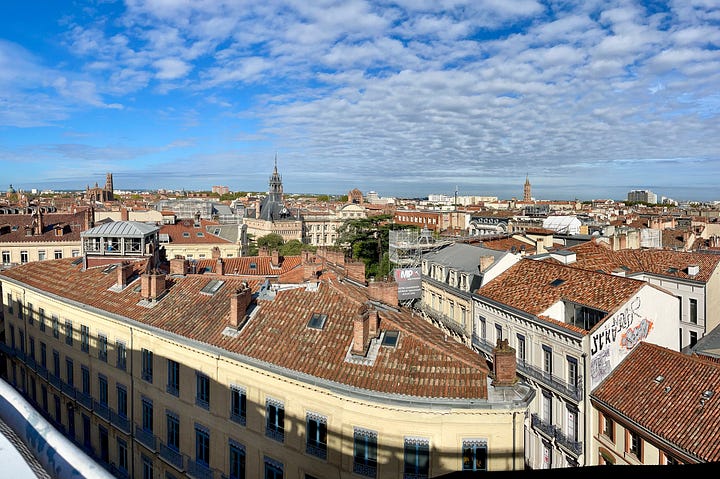
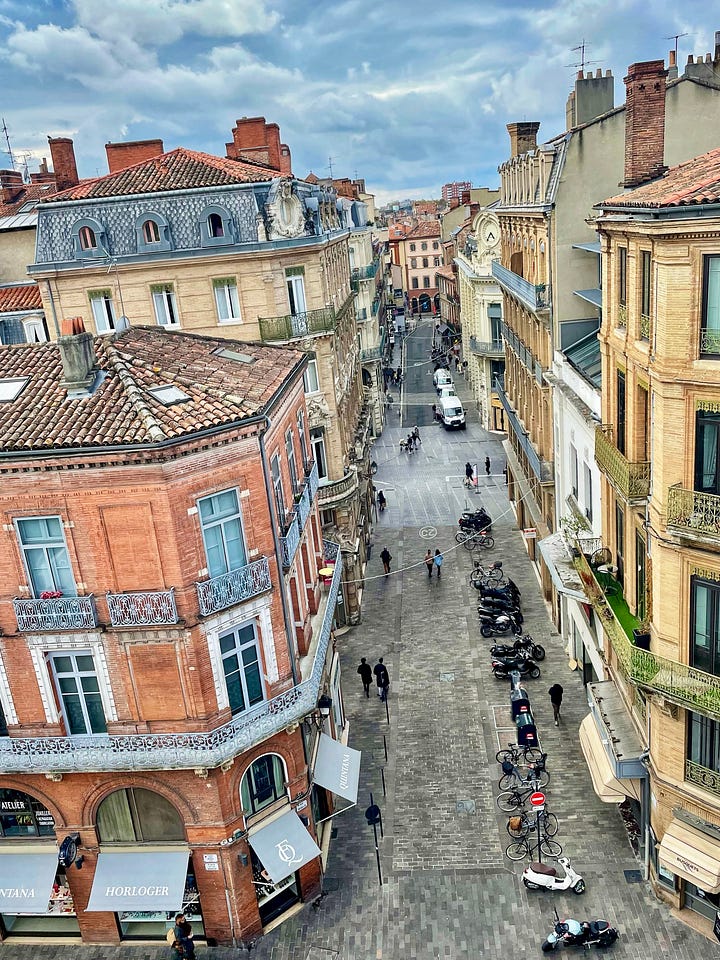
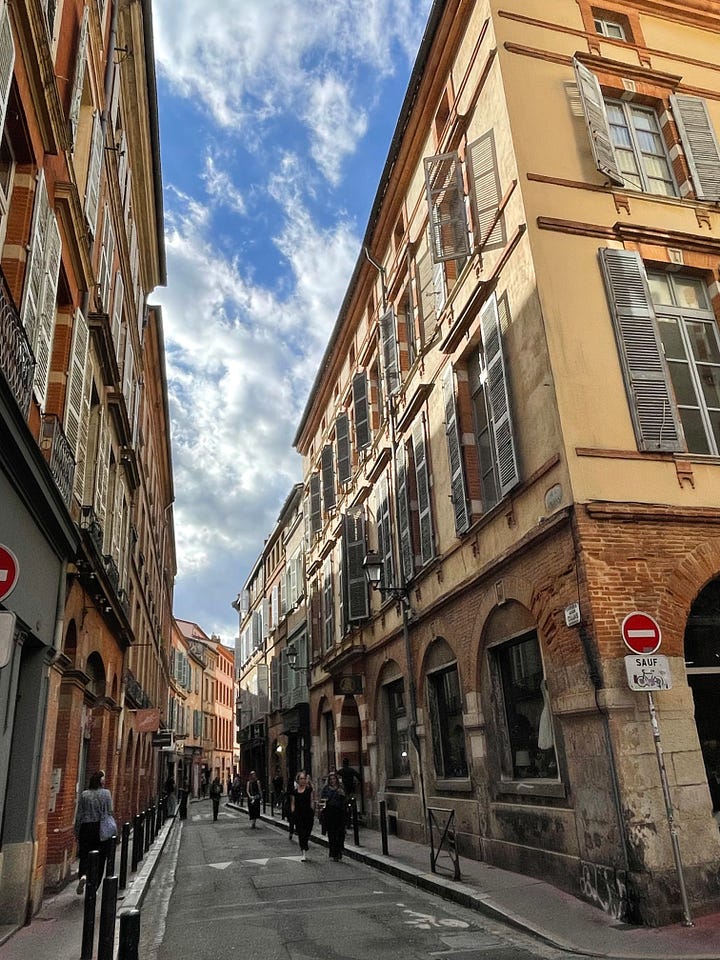
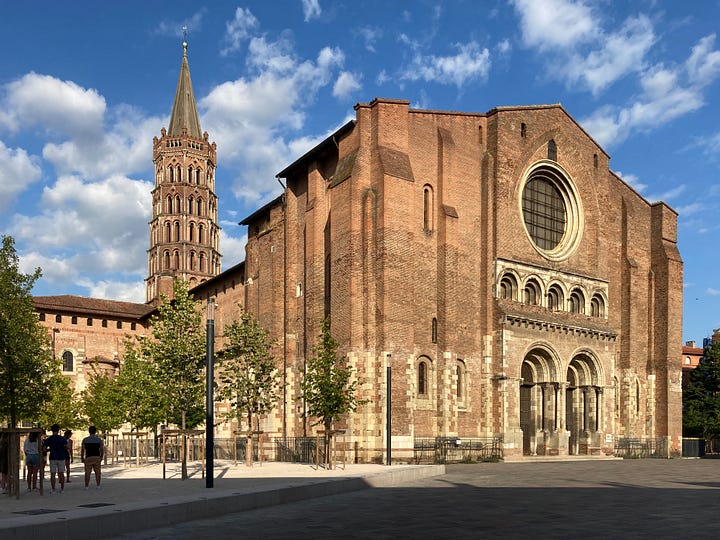
Unlike limestone, brick has always come cheap in Toulouse. When you see stone accents on the city’s more elegant buildings you know someone was trying to make a statement.
Along the streets or on the (many) city squares you spot local landmarks and icons: the red and black colors of the beloved rugby team, le Stade Toulousain. Paul Louis Riquet, the man who imagined, built and financed in part an engineering feat in the 17th century, a complex waterway system linking the Mediterranean sea to the Atlantic ocean. Its most famous section, le Canal du Midi, starts in Toulouse. A walk along the canal’s peaceful banks is a must-do while in town.
Then there’s local son and legendary performer Claude Nougaro who once wrote a tribute (anthem?) to his hometown moving enough to give any Toulousain (even those who have moved away) the goose bumps. O Toulouse !
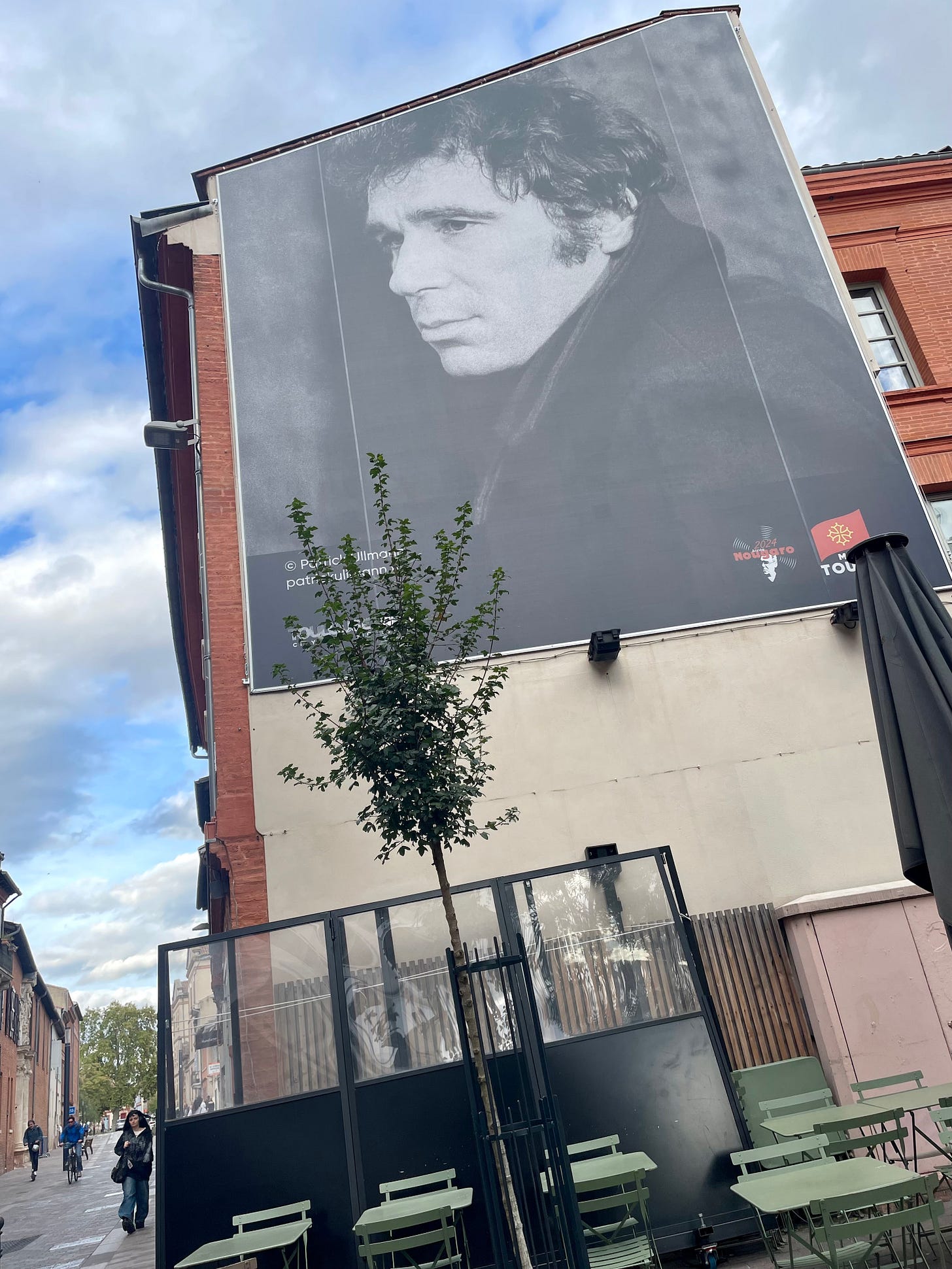
Tastes
While in town, it’s always a good idea to sample a hearty cassoulet (the famed meat and white bean stew) or choose from a selection of duck-based dishes. Le canard is all the rage in southwestern France!
L’apéro (aperitif) may feature a generous charcuterie board, some local wines, a glass of Pastis, the anise-flavored drink so popular in southern France, or my personal favorite le Floc de Gascogne (an Armagnac and grape juice blend from nearby Gascony.)
To discover the best of Toulouse; explore the renowned Victor Hugo covered market; or to join a wine or pastry tour, reach out to award-winning tour company Taste of Toulouse run by knowledgeable Jessica, an American expat I met years ago before relocating to France. Tell them Véro sent you.
As they say in the Occitan language, bon apetís !
A ta santé Toulouse et à bientôt !
This concludes Part 1 of the story. Part 2 will be sent to paid Substack subscribers and France with Vero patrons in a few days. It includes an audio pronunciation tutorial for all expressions listed here, housing and restaurant recommendations, gift suggestions (including some purple gift ideas - when you know, you know) and a link with the replay of a recent live-streamed tour filmed earlier this month in Toulouse.

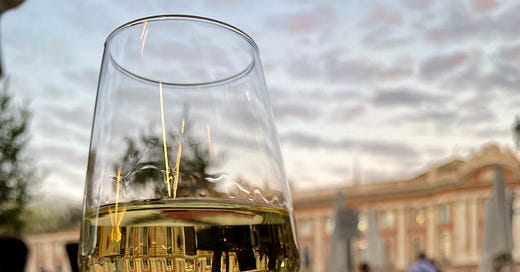


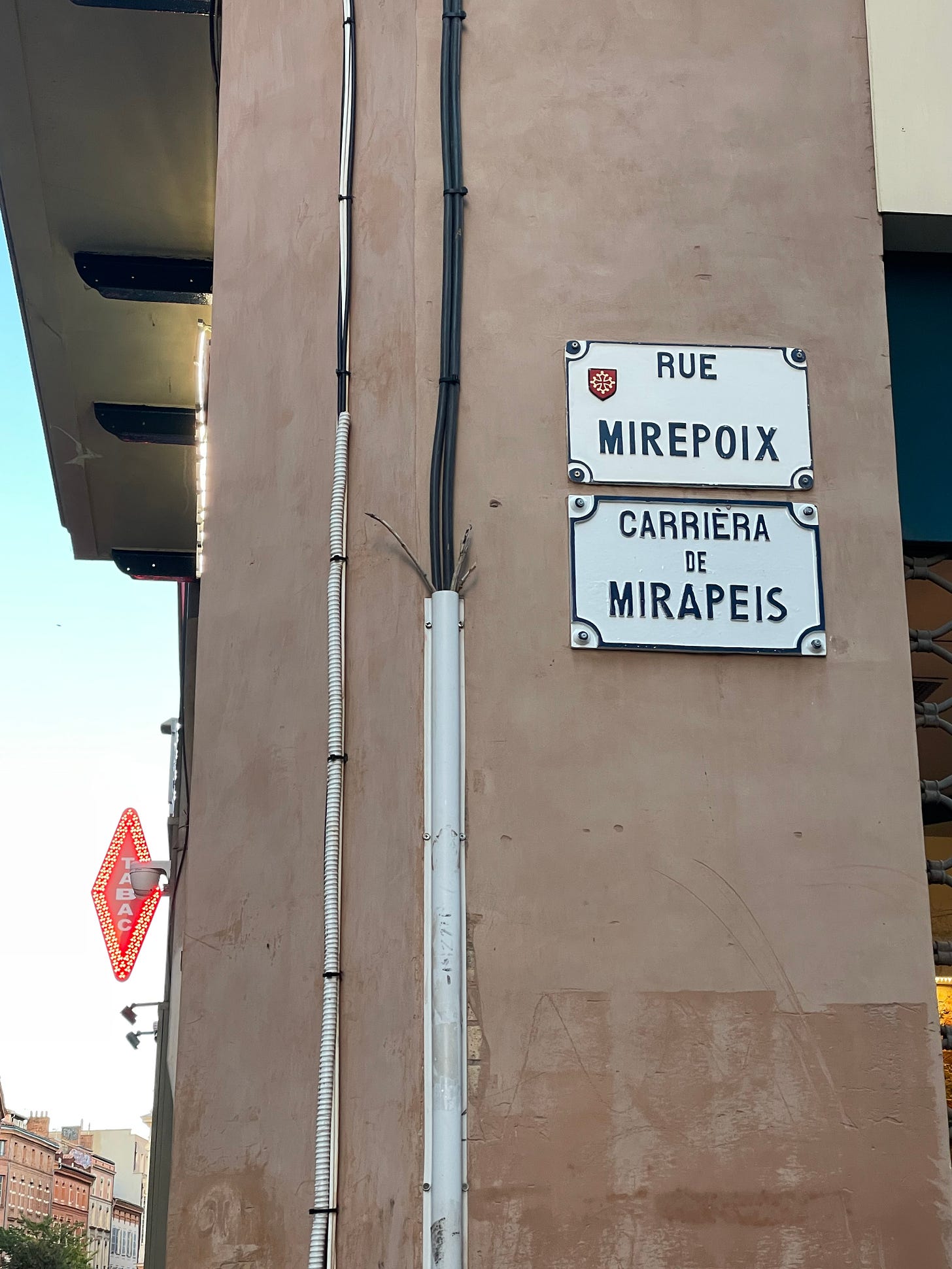
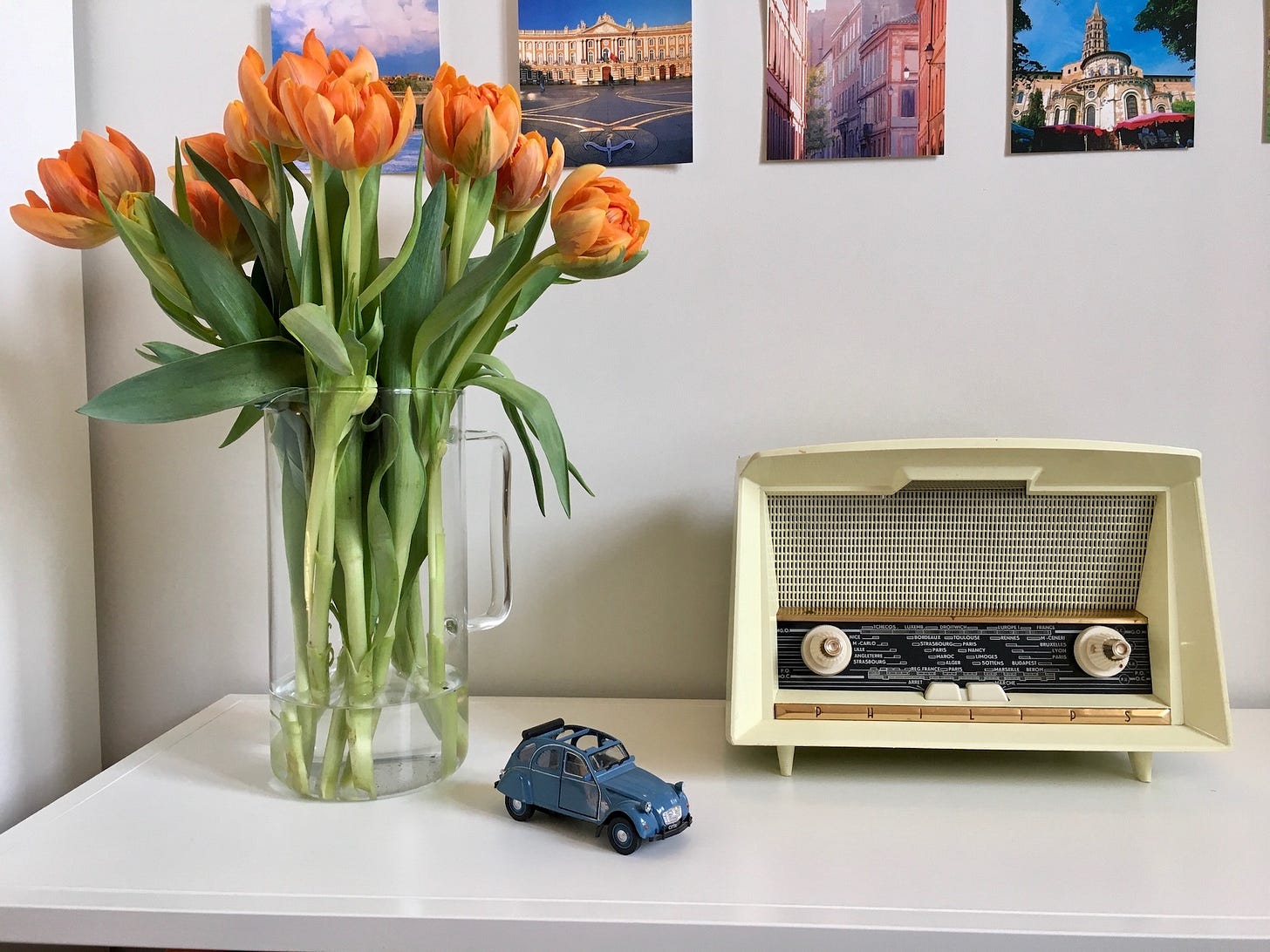
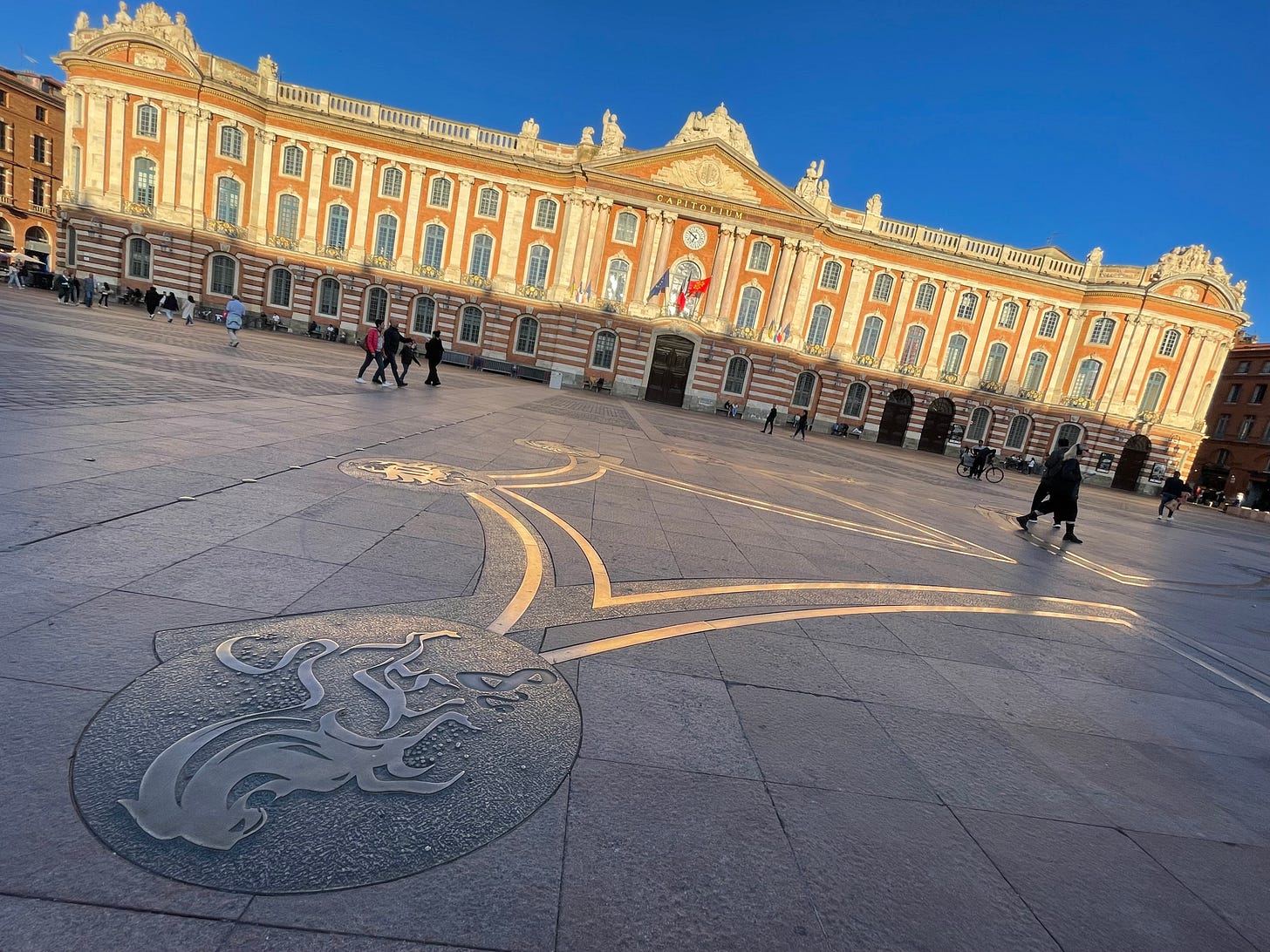
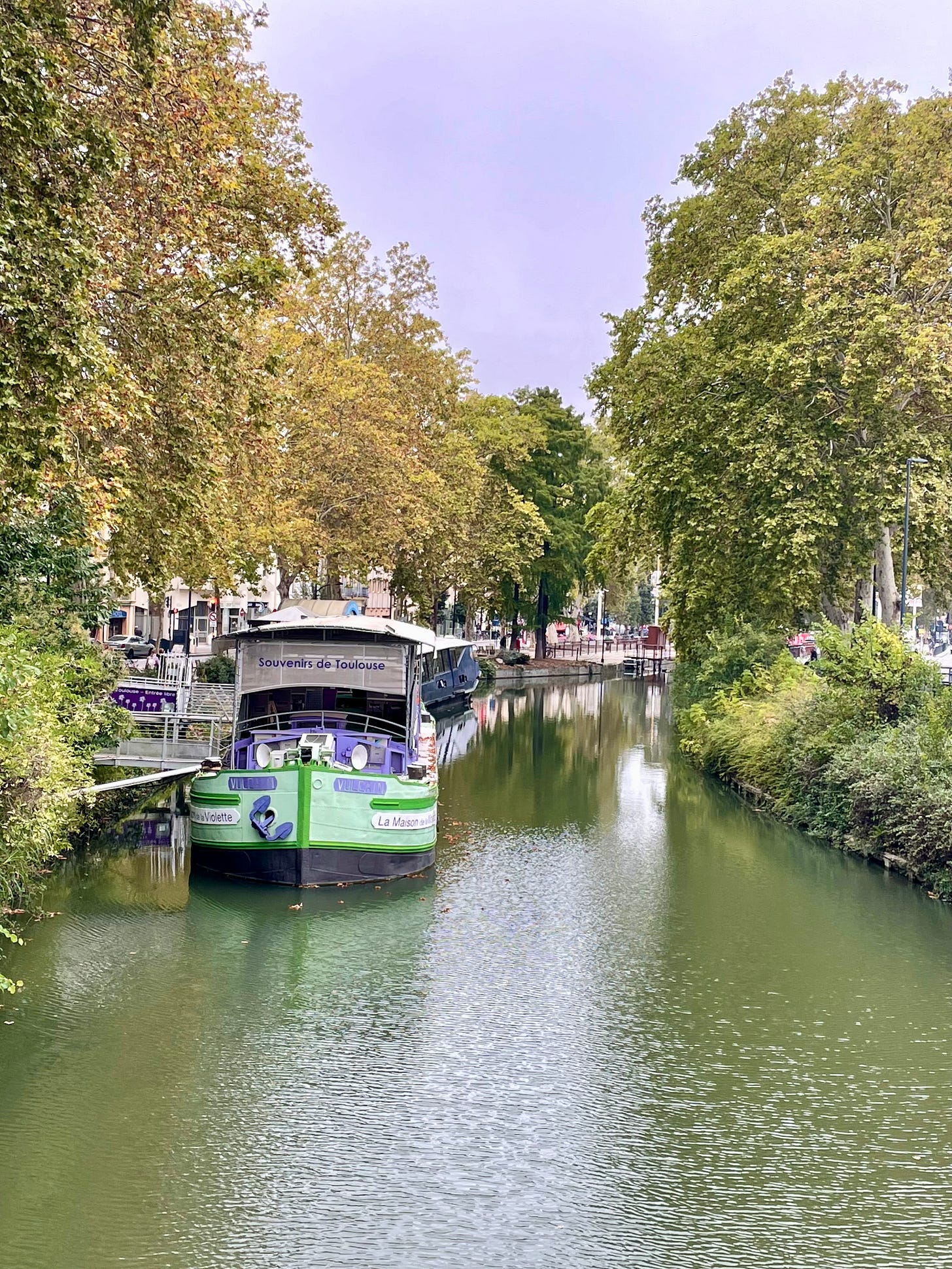
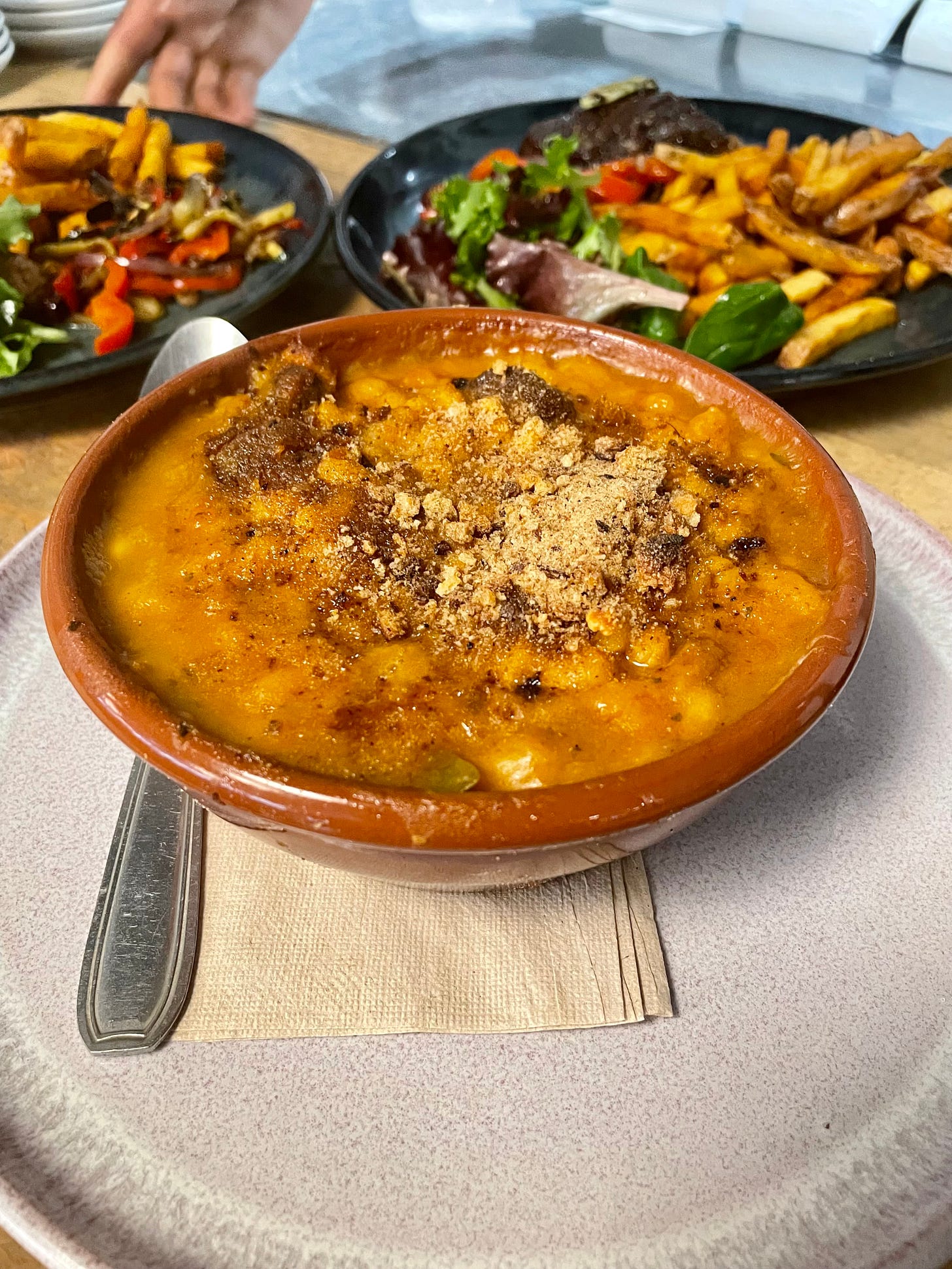

I’ve been living in Toulouse for the last (almost) two years and I’m about to move to the Basque Country in a couple of weeks! This was so sentimental to read and makes me realize how much I’ll miss it here! Thanks for writing. ❤️
PS - I’m so glad that I learned French with the word “chocolatine” in my vocabulary first. Saying pain au chocolat seems massively wrong! Chocolatine is one of my favorite words in this language—it feels like une chanson when it leaves your lips!
I loved reading this take on Toulouse, a city I go to fairly often. Unfortunately I don't always have enough time to linger.
I remember when we moved to Rodez, a Parisian friend of mine who had also just moved south was horrified to hear my daughters starting to say "maisong", "paing", and so forth. She also very sternly admonished me for once pronouncing the s on "moins," something I had started to hear among my French colleagues.
One of my daughters is now a stage actress in Paris and has had to learn to tone down her southern accent for most roles, even though she is in no way playing Parisians. It's not fair!